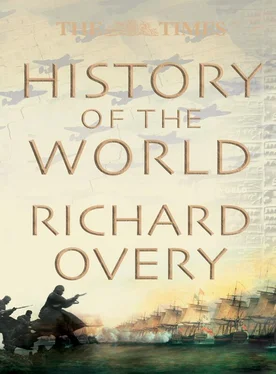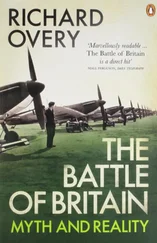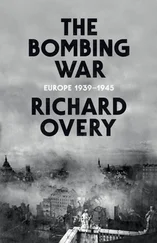THE TIMES
HISTORY OF THE WORLD
Richard Overy
TIMES BOOKS
Cover
Title Page THE TIMES HISTORY OF THE WORLD Richard Overy TIMES BOOKS
Contributors
Introduction
ONE HUMAN ORIGINS AND EARLY CULTURES
TWO THE FIRST CIVILIZATIONS
THREE THE CLASSICAL CIVILIZATIONS OF EURASIA
FOUR THE WORLD OF DIVIDED REGIONS
FIVE THE WORLD OF THE EMERGING WEST
SIX THE AGE OF EUROPEAN DOMINANCE
SEVEN THE AGE OF GLOBAL CIVILIZATION
CHRONOLOGY OF SIGNIFICANT EVENTS I N WORLD HISTORY
BIBLIOGRAPHY
Index
Copyright
About the Publisher
EDITORS:
Geoffrey Barraclough
Late President, Historical
Association
Chichele Professor of Modern
History
University of Oxford
Norman Stone
Professor of History
Bilkent University, Ankara
Geoffrey Parker FBA
Andreas Dorpalen
Distinguished Professor of History
The Ohio State University
Richard Overy
Professor in History
University of Exeter
CONSULTANTS:
David Abulafia
Daud Ali
F R Allchin
R W Van Alstyne
David Arnold
John Barber
James R Barrett
Iris Barry
Peter Bauer
Christopher Bayly
W G Beasley
Ralph Bennett
Amira K Bennison
A D H Bivar
Brian Bond
Hugh Borton
Hugh Bowden
David Brading
Warwick Bray
John Breen
Carl Bridge
F R Bridge
Michael G Broers
Hugh Brogan
Tom Brooking
Ian Brown
Anthony Bryer
Muriel E Chamberlain
David G Chandler
John Cannon
Eric Christiansen
Colin Coates
Peter Coates
Frank Cogliano
Irene Collins
Michael Crawford
James Cronin
Douglas Dakin
John Darwin
Ralph Davis
Kent Deng
Robin Dunbar
I E S Edwards
Robert Evans
John Ferguson
Felipe Fernándo-Armesto
Stefan Fisch
David H Fischer
John R Fisher
Kate Fleet
Michael Flinn
Timothy Fox
Alan Frost
Robert I Frost
Clive Gamble
W J Gardner
Carol Geldart
John Gillingham
Ian Glover
Martin Goodman
Graham Gould
D G E Hall
Norman Hammond
John D Hargreaves
Tim Harper
David R Harris
Jonathan Haslam
Ragnhild Hatton
M Havinden
Harry Hearder
W O Henderson
Colin J Heywood
Sinclair Hood
Albert Hourani
Henry Hurst
Jonathan Israel
Edward James
Nicholas James
Richard H Jones
Ulrich Kemper
Hugh Kennedy
David Killingray
George Lane
Mark H Leff
Karl Leyser
Colin Lewis
James B Lewis
Wolfgang Liebeschuetz
D Anthony Low
David Luscombe
John Lynch
Rosamond McKitterick
James M McPherson
Isabel de Madriaga
J P Mallory
P J Marshall
A R Michell
Christopher D Morris
A E Musson
Thomas Nelson
Linda A Newson
F S Northedge
Joan Oates
David Ormrod
Caroline Orwin
J H Parry
Thomas M Perry
David Phillipson
Sidney Pollard
Andrew Porter
Avril Powell
T G E Powell
John Poynter
Benjamin Ravid
Tapan Raychaudhuri
B H Reid
Michael Roaf
Francis Robinson
A N Ryan
Gören Rystad
H W F Saggs
S B Saul
Peter Sawyer
Chris Scarre
Roger Schofield
D J Schove
H M Scott
H H Scullard
Andrew Sharf
Stephen Shennan
Andrew Sherratt
Peter Sluglett
R B Smith
Frank C Spooner
Jocelyn Statler
L S Stavrianos
Zara Steiner
Sarah Stockwell
Melvyn Stokes
W C Sturtevant
Julian Swann
Alan Sykes
Martin Thomas
E A Thompson
Hugh Tinker
Malcolm Todd
R C Trebilcock
Hugh R Trevor-Roper
Denis C Twitchett
Frans von der Dunk
F R von der Mehden
Ernst Wangermann
Geoffrey Warner
Anne Waswo
D Cameron Watt
Bodo Wiethoff
D S M Williams
Glyn Williams
H P Willmott
David M Wilson
Jon E Wilson
Peter Wilson
George D Winius
INTRODUCTION
‘The State of the World’
The choice of Beijing, capital of China, as the host city for the 2008 Olympic Games has produced an extraordinary, if brief, historic marriage of East and West. The games symbolize the world of classical Greece, whose legacy has played such an exceptional part in the development of the Western world. Greek civilization gave the West professional medicine, geometry, ethical speculation, democracy, an ideal of participatory citizenship, codified law, the first history, a science of politics and an artistic heritage imitated again and again down the ages. Many of our common terms today—from economics to psychiatry—are Greek in origin.
China, on the other hand, is seat of the most ancient and continuous of civilizations. Always the site of the largest fraction of the world’s population, China for thousands of years, despite waves of invasions, sustained a way of life and a social structure which proved remarkably enduring. Chinese values and intellectual life were not, unlike Greek civilization, diffused widely outside the frontiers of what was loosely defined as ‘China’. Western critics in the 19th century regarded China as a stagnant culture, unmoved for centuries, but the artistic, scientific and intellectual life of China, though very different from that of the West, was rich and diverse. A good case can be made for arguing that China has been a fixed point throughout the period of recorded history, where Greek culture has been anything but continuous, relying for much of its survival on the intercession of the Arab cultures of the Middle East that succeeded the Roman Empire, in which aspects of Greek thought were kept alive and then re-exported to late medieval Europe.
The China of the 2008 Olympics is still a central part of the world story, but it has come part way to meet the West. From the late 19th century traditional Chinese society crumbled under Western impact. A nationalist revolution overthrew the emperors and the old way of life after 1911. A second communist revolution transformed China into a more modern industrial state after 1949. Over the past 25 years China has undergone a third revolutionary wave by embracing the fruits of modern global capitalism and becoming one of the world’s major economic players. China has not become an Asian ‘West’, but has adapted what the West has had to offer and has turned China into a world ‘superpower’. The relationship between East and West has come full circle. For centuries the West pushed outwards into the world exporting, usually violently, a version of Western civilization. China was long resistant to this pressure; now China can exert pressure of its own, challenging the monopoly hitherto enjoyed by the remorseless march of Western economics, political models, consumerism and popular culture.
The meeting of Greece and China weaves together two of the central threads of world history. But the Olympics are also a symbolic fusion of ancient and modern. Although the original games are far removed from the glossy, commercialized, technically sophisticated and ruinously expensive modern version, their revival is a reminder that there are easily understood reference points back to the Europe of more than 2,000 years ago. Boxing, wrestling, javelin-throwing and running are simply what they are, the same for a modern audience as they were for the Greeks. Even the marathon, the icon of the current Western obsession with keeping fit, describes a Greek legend, when a soldier runner covered 26 miles non-stop under a gruelling sun from the Battle of Marathon to Athens to warn of the approaching Persian fleet, only to drop dead from the effort on his arrival. Distant though the ancient world seems, the span of recorded human history is remarkably short in relation to the long history of prehistoric man and the infinitely longer history of the earth. The span can be covered by just a hundred human lives of 60 years, stretched out one after the other. Only 50 human lives will take you back to those first Olympic Games.
Читать дальше










